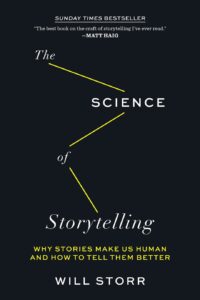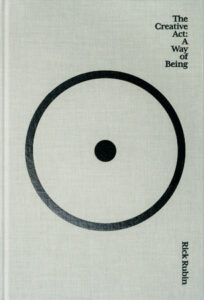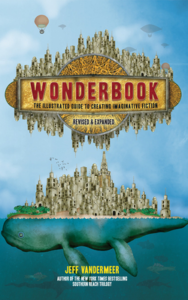The Best Writing Guides
January is the time of year when I’m most in need of a little encouragement and inspiration. It’s also when I try to purge and organize my house.
While paring down my too-crowded library, I recently realized just how many books of writing advice I’d amassed (Don’t ask; Marie Kondo would be horrified) and decided to compile a list of my favorites, broken down by category.
These definitely made it into the “keep” pile.
Best Writing Guide if You’re Bored of the Same Old Advice
Wonderbook by Jeff VanderMeer
Gorgeous artwork. Story diagrams shaped like deep sea monsters and a spaceship traveling between wormholes. Writing advice handed out by a man with a bird skull instead of a head.
If you are looking for something different– something weird — to kick your writing to the next level, check out this wonderful “Illustrated Guide for Creating Imaginative Fiction.” In addition to examining classic elements like narrative design, worldbuilding and characterization in refreshing ways, it also includes unusual writing exercises and advice from top science fiction and fantasy authors like George R.R. Martin, Ursula K. Le Guin, Neil Gaiman, Nnedi Okorafor and Kim Stanley Robinson.
It should be no surprise that all this brilliant oddity comes from the brain of Jeff VanderMeer, the author probably best known for the creepy eco-thriller Annihilation, and that the guide is geared toward writers of speculative and fantastic fiction. I’d also say it’s best appreciated by intermediate-to-advanced writers–but then again, maybe new writers without preconceptions about what a story “should” be are the ones best poised to use it to create something just as strange and original and stunning.
Best Writing Guide Inspired by Brain Science
The Science of Storytelling by Will Storr
Many guides can tell you what works when crafting fiction, but they don’t answer why. This book does, using the fascinating evidence from the fields of neuroscience and psychology to show how we are hardwired for story. By the end of it, I not only had a better idea of how to shape my latest protagonist, I had better insight into my own mind and the personalities and motivations of the people I live and work with every day.
If you have any interest in how the brain works, the lies we tell ourselves, why it’s so hard to change someone’s opinion, why politics is polarized, how our sense of good and evil goes back to evolution, and, most of all, how to use all this knowledge to make your fiction both gripping and meaningful, this book is for you.
Best Guide to Navigating the Creative Life
The Creative Act: A Way of Being by Rick Rubin
I admit to being hesitant about this book, which I received as a gift. It’s not about writing per se, more about the ups and downs all artists experience—managing self-doubt and bad habits, finding motivation and peace despite rejection or failure.
Because of this, I worried it might be a little *waves hands* touchy feely.
It is. But it’s also very good. I realized this, paradoxically, after I found myself yelling at the book and wanting to throw it against a wall (You do that, too, right? Have arguments with a book in your mind?). This was after its author, music executive and producer Rick Rubin, waxed poetic about the importance of inspiration–following it when it strikes, putting everything else second to your art.
As a mother of three (among other responsibilities), this pissed me off seven hundred different ways. I hadn’t noticed the author’s name up until that point, but it suddenly became obvious to me that he must be a Privileged Man—likely a Man With No Children or Ailing Relatives Who Needed Cared For. Or perhaps a Man with a Wife/Partner/Nanny who did such things for him. How dare he judge how and when I create and use it to question my commitment to all the things I love!!!
Fast forward 48 hours after my silent tantrum: One of my kids was up in the middle of the night. To get back to sleep, I started thinking of my latest story, and I suddenly had a great idea how to solve a problem I’d been struggling with. It was 2 a.m., and I had to be up at 6 a.m., so I normally would have forced myself back to sleep, hoping the idea would still be there later. But then I remembered Rubin’s advice and decided to follow it.
I spent the next 45 minutes frantically typing at my desk and then fell back into bed. In the morning, I was tired … but, honestly, I’m always tired. And the notes I’d written not only still made sense, they spurred me into an incredibly productive workday on a project I might have otherwise abandoned.
So long story short, Rubin’s advice was great, I just had to figure out the manner and circumstances in which it worked for me. (Which is something the author had warned I’d have to do in his introduction.) I swear, it’s like I can still see him, smiling as he tells me, “I told you so.”
Best Guide to Revisions
Refuse to Be Done by Matt Bell
I had the good fortune to take a class on revisions by speculative author Matt Bell in 2022, which is when I first heard of his incredibly practical nonfiction book. I’m the type of writer who usually reaches for advice less at the start of my process (when my creative juices are flowing and everything seems new and exciting and perfect) and more once I’ve written that first draft and come to the stunning conclusion that it’s a steaming pile of garbage.
So this book gets me. It says, “Yes, little dove, we know. It’s OK it’s garbage. But no, no, no. Don’t throw it away. Here’s what you do instead.”
Best Guide in Memoire Form
On Writing by Stephen King
If you think Stephen King’s horror novels are out there, just wait until you read about his life. This entertaining memoire/craft book is great for those who want a little less “how to” and a little more, “Wow, I could do that, too.” (Although who are we kidding, we’re definitely no Stephen King. Then again, we’ve also never been so high on cocaine that we can’t remember writing whole novels. So … maybe it’s all for the best?)
Best Overall Writing Guide
Story by Robert McKee
If I could give my writer friends only one book, this would be it. Technically a blueprint for screenwriters, this classic guide works for novelists and short story writers too because it’s really how to break your idea into manageable pieces that build and turn on each other, transforming them into a powerful expression of how you see the world.
McKee uses tons of examples from classic movies to illuminate theoretical concepts, examine common mistakes (and possible solutions), while also acknowledging important exceptions and limitations of writing rules. It’s great for both beginners and experts alike, one of those works that I learn something new from (or am reminded of something important I’ve forgotten) every time I pick it up.



